This Holiday Season, Let's Thank An Anonymous Spanish Graffiti Artist Who Reminded Us How The World Could Be If you've perused the theater's web site, you know that the name Alley Cat Theater comes from meshing the names of my two daughters, Allison and Kathryn. What you surely don't know unless you know us intimately is that the logo for Alley Cat Theater is a piece of graffiti that Allison found on a wall in Granada, Spain. It's also a tattoo that all three of us wear.
Two cats. One white. One black. And a shooting star. It's a piece of art that an anonymous graffiti artist spray painted on a wall that celebrates a worldview that I've always tried to support. It represents a worldview that not only embraces but celebrates diversity and encourages us to put aside our differences and focus on our similarities. Its subtle Moorish overtones symbolize the many wonderful cultures the world contains. It imagines how a world could be, which is also what the theater does. And so, in the spirit of the holiday season and an anonymous graffiti artist, I'm wishing you and your family and friends joy, peace, serenity, and the best of luck in the new year. --John Greiner-Ferris Founding Artistic Director www.alleycattheater.org
3 Comments
 Sarah Schneider Sarah Schneider Plank is receiving some very nice press. The designers and actors who have worked hard and used their incredible talents to put together the show that you see at the Calderwood Pavilion most definitely deserve their names noted. There are always a couple of people, though, who work tirelessly and without whom the show would never go on, but are never noted in the theater reviews because their work is very much behind the scenes. There are two very important people who have worked on Plank—Stage Manager Sarah Schneider and Technical Director Steve McGonagle—along with the members of the cast who brought their choreography skills to bear, without whom the show never would have reached the production values for which it’s being noted. The stage manager is always the first person in the theater and the last to leave. Sarah actually came to Plank late when the stage manager we originally hired went MIA (it happens) so she had the extra burden of coming in when the production was already in motion. Like all stage managers, Sarah seemingly has a thousand things to do at once, and only a highly focused individual with real knowledge of the theater can pull off what she does. She also doesn’t feel the need to laugh at my jokes, proving that she’s not a suck up, which has led me to ask her advice about things before acting upon them. That’s how much trust we put into the stage manager at Alley Cat Theater. 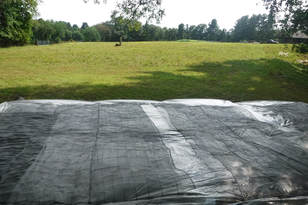 The sheep pasture in Bolton, Massachusetts The sheep pasture in Bolton, Massachusetts When JiYoung Han came in with her set design, the responsibility of building the impressive set that reaches 19 feet at its highest point fell to Technical Director Steve McGonagle. Because of the size of the set, Steve built the panels in a pasture on a sheep farm in Bolton, Massachusetts under some beautiful, spreading trees. The panels’ foundation is made of sheep fencing, naturally, covered in window screen covered in a kind of skim coat. Objects that represented a dying earth, keeping with the play’s main theme of rebirth, were imbedded into the skim coat while it was still wet, including a couple of actual sheep bones. The back of the set that our patrons see when they arrive in the space is hung with a handmade fishing net made in Italy that Steve found on Craigslist. Steve also is our prop master, making the plank, which had to be both lightweight and durable, the copy of Moby Dick, the lunchbox, and the money that Potpee throws into the ocean. Finally, one of the primary theatrical elements in Plank is movement, and during auditions Director Megan Schy Gleeson particularly was looking for actors who also had a background in dance and/or movement. Actors Sydney Grant and Adam Lokken are both choreographers, and Actor Fray Cordero is part of the first graduating class in Contemporary Theater at the Conservatory. For all three actors, movement is a language they speak fluently; instead of speaking it audibly they speak it physically. The movement you see in Plank is a result of a devised theater process where the entire ensemble worked collaboratively with the director to build the choreography. Plank runs until Saturday, September 16th. Tickets can be found at BostonTheaterScene.com. Reduced priced tickets can be found at Bostix. And we also offer half-price student tickets.
Plank has been open for a week, and there is one observation I've been making with bemusement and even sadness. It is how theater-goers are programmed to attend a theater production.
Every night I watch patrons enter the space and skirt the playing area--what others might call the stage--on their way to their seats by following an invisible line that is drawn by the first row and two “rocks” that actually are hiding two lighting instruments. The patrons are clearly thinking, I’m not allowed to cross that line and walk on the “stage”—the sacred place where only actors are “allowed.” But there is nothing stopping anyone from going onto the playing area; it's all in their heads. There's nothing stopping anyone from taking a closer look at the details in JiYoung Han’s gorgeous set and immersing themselves in the underwater light of the preshow, i.e. entering the world of the play. I would encourage anyone to do that. Plank and Alley Cat Theater is also about breaking down the barriers and expectations that I feel traditional theater (and even ourselves) have set up to limit our theater experiences. The first part of the play is based on movement and magical realism, two elements I would bet most American audiences aren’t accustomed to. Long pauses are built into the script allowing the audience to experience what Potpee is experiencing. (It takes a bit of time to read Moby Dick and you might be surprised to see what can happen.) If you’ve been trained by popular culture to expect snappy dialogue, repartee, and quips, you're going to be disappointed or even angry because they are just not there. I think instead what you'll hear is interesting conversation. And in the second part of the play, if you’ve come to expect scenes of a certain length ending with a kicker line (again, a major influence of especially television) you just won’t find it. Not only did that little geometric diagram, length x width x height break apart for Potpee on the Ocean, but your notion of dramatic structure might--and maybe it should--break apart. I hope you do come see Plank. And when you do, try to jettison as much of your expectations for theater as you can before entering the space. Let your expectations wash off your plank the same way everything was washed off Potpee’s plank. Walk across the set to your seat. Put away your notion of time and story-telling in the theater. Don’t try to control the theater in the way that Potpee first tries to control her plank, but instead, like Potpee, give into the plank and let it take you on your own journey. Click on the image to view trailer. Plank will open on Saturday, August 26 at the Calderwood Pavilion at the Boston Center for the Arts where it will run until Saturday, September 16.
You can get your tickets online from BostonTheatreScene.com, by calling the box office at: 617 933 8600, or visiting the box office at: Calderwood Pavilion Box Office 527 Tremont Street Boston‚ MA 02116 Adults - $25.00 Students - $12.50 with a valid student ID. Preview - $12.50 The full schedule is: Friday, August 25: Preview, 8:00 p.m. Saturday, August 26: Opening Night/Press Night, 8:00 p.m. Wednesday, August 30, 7:30 p.m. Thursday, August 31, 7:30 p.m. Friday, September 1, 8:00 p.m. Saturday, September 2 Matinee, 2:00 p.m. Saturday, September 2, 8:00 p.m. Wednesday, September 6, 7:30 p.m. Thursday, September 7, 7:30 p.m. Friday, September 8, 8:00 p.m. Saturday, September 9, Matinee, 2:00 p.m. Saturday, September 9, 8:00 p.m. Sunday, September 10 Matinee, 2:00 p.m. Wednesday, September 13, 7:30 p.m. Thursday, September 14, 7:30 p.m. Friday, September 15, 8:00 p.m. Saturday, September 16, Closing Night, 8:00 p.m. 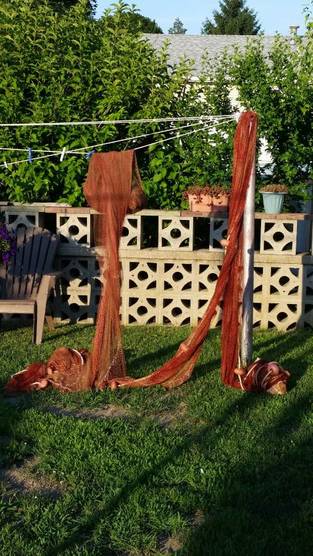 The Holy Grail of fishing nets. The Holy Grail of fishing nets. The title "founding artistic director" may sound like I'm a big cheese, but here at Alley Cat Theater that title doesn't mean much. I don't even know why I call myself that; maybe a fit of narcissistic egotism, I don't know. But I do wish in retrospect that I had given myself a more accurate one. Something along the lines of Chief Dogsbody. Even that doesn't quite fit because I actually like all aspects of theater including the menial jobs like unloading trucks, running cables, and sweeping the stage. When the technical director for Plank, Steve McGonagle, emailed me with a link to an ad on Craigslist for not just any fishing net, but a net that had been handmade in Gaeta, Italy and was the perfect fishing net to dress our set, I was on it. The listing phone number was answered by an elderly woman with a very thick Italian accent. What happened over the ensuing couple of days will be familiar to anyone who has ever worked on props/sets in a small theater. Fits and starts. A rain delay that meant rescheduling the hundreds of other things I had to do. Frustration that Anna--we were now on a first-name basis--couldn't tell me, or refused to tell me, what the net was made of. That seemingly little detail was so important because the net would need to be fireproofed in order to be used on stage, and poly nets can't be fireproofed. All she would say, over and over and over again, was that the net was handmade in Gaeta, Italy and she had paid five hundred dollars for it. Lira? I questioned. No, American dollars, she answered. A drive to what turned out to be Cranston, Rhode Island, though the ad said Providence. Miscommunication of the net's location, due in part to Anna's accent, that left me on a dead end street, worried that I'd soon be surrounded by police cars and having to explain my intentions. I'm not joking, officer: A fishing net for a play. If you'd just unhandcuff me, I can explain. But now I was on a mission, and if you know anything about producing theater, it's that you have to be that driven, so that nothing is going to get in your way, and every obstacle becomes the chance to prove yourself once more. It all culminated on a side street in Cranston, Rhode Island, a small Italian community festooned with decorations for the upcoming Feast of Mary, where I was greeted by the sweetest couple I think I've ever met, Anna and her husband Marcello, who had been a fisherman, and who led me to a small shed in their daughter's back yard, where their daughter's Labrador retriever attacked me, and where they lifted the lid of a Styrofoam cooler, and I swear a light emanated from the cooler, and I heard the heavenly hosts, and I laid my eyes on the Holy Grail of fishing nets. Plank opens August 26th at the Calderwood Pavilion at the BCA. You can get tickets here. Sunday. July 23rd. Our first rehearsal. We open in a month and two days from now. Our first rehearsal was typical; it was the first time the cast and design team were all in the same room at the same time, so there were welcomes and introductions, and presentations by the designers introducing the actors to all of the hard work they've been doing over the past weeks. The actors read the script aloud, Elizabeth, our costume designer, took the actors' measurements, and Megan, the director, led the actors in movement exercises, which will be a staple for this production since Plank relies so heavily on movement.
There are moments--sometimes ten-minutes worth of moments--when you're so glad you're a playwright. They don't come often. Most playwrights who I know spend an inordinate amount of time complaining about being a playwright. But then, you have a night like I did, last Saturday, at Roxbury Repertory Theater's annual "Six Playwrights in Search of a Stage" short play festival, and you get this feeling that everything you've been working towards and dreaming about is right there in front of you.
My ten-minute play, Taking Up Space, was accepted into the festival. It was a play I started way back in 2010, and it's about Will, a man who has lost his job, and comes home from the unemployment office to find his new neighbor has parked his Jeep in the parking spot Will's been parking in for the last 16 years. Everything in his life that has given him self-worth--his job, his parking spot, his ability to provide and be a man--has been taken away. His wife is supporting them as a waitress, wearing her clothes to accentuate her figure because "...it's good for tips." The only jobs they're hiring for down at the unemployment office are for prison guards. "Did you apply?" Adele asks, and Will just looks at her. Will is just taking up space. Marshall Hughes is the artistic director at Roxbury Rep, where he has consistently, and some might say, thanklessly, been producing relevant theater in Boston for...well, a long time. That night, Taking Up Space was in company of some other playwrights I know who quietly ply their trade in Boston, some also might say thanklessly, but don't stop writing compelling, relevant work despite a general oversight by the mainstream media: Robibe MacCauley, Peter Snoad, and Cliff Blake. Alan White directed Taking Up Space, and while he and the cast were rehearsing he had only two questions for me. He wondered why it was Will, and not Adele, who remembered the social worker brought cookies when they first moved into their house and the state was investigating an injury to their son, Walt; and why does Will watch roller derby on television? Alan very sensitively directed Stephanie Cotton-Snell and Bill Marcus. Both actors afterwards told me how they could relate to the characters. The audience also seemed to be able to relate to the plight of two people who have been devastated by the economy, and who have only each other to cling to. The reason I'm blogging about this is to illustrate a point I was trying to make in a comment to a story in the Boston Globe, when a reporter asked some Boston-based playwrights if playwrights should be responding to the Trump Administration. They all said, no, that playwrights and playwriting should take the long view of things. (You can read the story here.) Except for a very few playwrights (and I don't consider myself one of them) political and avant garde theater is all but non-existent in Boston. I don't think playwrights should or can be responding to current events in the way that, say, SNL does. You're talking about two completely different mediums. But in respect to making relevant theater, I think playwrights should be canaries in the coal mine, being sensitive to and reacting to toxicity in our society long before everyone else. I think playwrights should be writing about where society will be, just like a quarterback leads a receiver and throws the ball, not where the receiver is, but where he will be. In that regard, I think playwrights need to occupy a certain place in society, and that notion has caused me to question on more than one occasion just where are the radicals that I thought all artists are? Sometimes I think American playwrights are just too comfortable. I present Taking Up Space, a first draft of which I wrote in 2010 while still in graduate school, as exhibit A. I sat there that night, watching these two actors perfectly portray two people who society has all but abandoned, and some might say I arrogantly defy anyone to tell me it's not first a damn good, well-written play, it's relevant to the events of today in trying to understand how Trump came to power, and it should be seen on more stages.
One of the many themes that I'm trying to address with Plank is the individual's relationship with society. This video is a pretty good summation of how I feel about our world, and maybe what we're doing wrong.
AUDITIONS FOR ALLEY CAT THEATER’S PLANK BY JOHN GREINER-FERRIS DIRECTED BY MEGAN SCHY GLEESON  Alley Cat Theater is holding auditions for its upcoming production, Plank, by John Greiner-Ferris and directed by Megan Schy Gleeson, to be produced at the Calderwood Pavilion at the Boston Center for the Arts, August 26 – September 16, 2017. We will be looking for three women and two non-gender-specific actors. The playwright encourages a diverse cast. Auditions will consist of a one-minute contemporary or classical monologue of the actor’s choice, and readings from the script. If you don’t have a monologue, you can use one from the script. Because the play is movement-based, please wear loose, comfortable clothing for easy movement. Plank is about Potpee, who, happy and content, adrift in the middle of the ocean on a plank of wood. Then she is “rescued.” Plank uses a mix of traditional theater and nontraditional, experimental theatrical elements that include movement, magical realism, and poetic language, addressing some of the more compelling issues of our time: climate change, refugees, individual rights, the importance of the individual in today’s society, social media, and nature vs. society. These are all speaking parts, there is a stipend, and we will be looking specifically for actors who are very comfortable with movement and dancers who are comfortable acting. Actors will play the range of characters, from people to whales to seagulls to parts of the ocean, and must be comfortable morphing from one character to the next. Auditions will be held: Saturday, March 25 from 2:00 to 6:00 Sunday, March 26, from noon to 5:00 Callbacks, if needed, will be Monday, March 27, from 6:00 to 9:00. at: Charlestown Working Theater 442 Bunker Hill Street Charlestown, MA 02129 Parking for the theater is available along Main, Bunker Hill, and Medford Streets To learn more about Plank and Alley Cat Theater, and to download a copy of the script, please visit www.alleycattheater.org/current-projects. To reserve your audition slot, please email your resume and headshot to [email protected] Alley Cat Theater is committed to fostering a diverse theater, hiring theater artists including actors, directors, dramaturgs, and designers regardless of their gender, ethnicity, age, religion, or sexual orientation. ### John Greiner-Ferris is the founding artistic director at Alley Cat Theater.
Do you ever get the sense that the problems in the world are just too immense? That there are forces at large that are so powerful and have so much momentum that any of us, as individuals, are powerless, or even worse, that we simply don’t count? I know as a playwright I wondered what I could do about a world that I felt was rapidly moving away from my own values and how I would like to see our world. We writers tend to be an introspective, introverted lot, and so, like many writers, I kept to myself and thought and observed. Before I explain what I came up with, I want to say that I did come to the conclusion that more than ever, the role of the individual in our society couldn’t be more important than it is now. Our individual rights and therefore our dignity as human being is being stripped away (and sometimes I think we’re just giving it away.) Individually, I pondered about what I could do. And here’s what I came up with. Here’s what I can do. I can write; it’s really all I know how to do. I can write plays that address the issues of today in what I feel is an intelligent, compelling, and thoughtful way. I can produce these plays. I can hire people, giving them the opportunity to ply their trades by helping me put on these plays, and while I can’t offer a living wage, I can continue to work towards being able to pay more than I have in the past. It’s a small list, I’ll grant you. But you try doing it. This list keeps me busy throughout the day all through the week, and keeps me awake in the middle of the night. Plank, our first full-length production that opens this August, is one of these plays. There are layers to that list, though, and I don’t want to delve into any of the layers except one. There is so much conversation in our country about diversity, race, and gender. Some have even blamed identity politics as the real or partial reason for the current political climate and administration. I don’t know about that. Again, just like same sex marriage, I see these issues simply as civil rights issues, and you don’t brush civil rights under the carpet. Maybe you can see how this relates to my conclusion about the importance of the individual and individual rights. I do feel strongly about the need for diversity in the theater. Many of you who are reading this right now may feel the same way I do—birds of a feather and all of that. But maybe some of you don’t. If you don’t, it’s you I’m talking to right now. For many years, I was a contract editorial writer for a pretty good newspaper. Now, this isn’t my idea, but another columnist said that when you write, there are three things that can happen: 1) the reader will say, that’s what I think, I agree with you; 2) the reader will say, you’re crazy, and shut you down; 3) the reader will say, I never thought of that, I’ll think about it. I’m going for #3. Here are the reasons I value and promote diversity at Alley Cat Theater. It is a value I have in my life, and if you’d like to understand why, you can read my bio here. People have helped, and continue to help me, along the way, and I stand with one of the characters in my play, Highland Center, when it comes to helping people: ALICE ANNE Not when I’m with you. I never understood why misery loves company, Hank. Why do people say, well, I suffered so you have to suffer too? I walked two miles in the snow so you should too? Shouldn’t it be if you suffered you don’t want anyone else to go through what you went through? Shouldn’t it be that we should want to stop suffering in the world, not preserve it? Hank, take care of Henry. Do your best, and don’t quit. Don’t run out on him. Hank, we all end up in the same place, the only difference is how we get there. A pine box, Hank. There. (Pointing to her headstone.) We all end up there. So, here are my reasons for insisting on diversity at Alley Cat Theater:
|
Alley Cat TheaterAlley Cat Theater produces new work that is intelligent, compelling, and thoughtful, telling stories by pushing the boundaries of the theater. Archives
December 2017
|
|
Alley Cat Theater has been funded by The Boston Foundation as part of the Live Arts Boston initiative, Eastern Bank Charitable Foundation, and the Bob Jolly Charitable Trust.
|
Proudly powered by Weebly

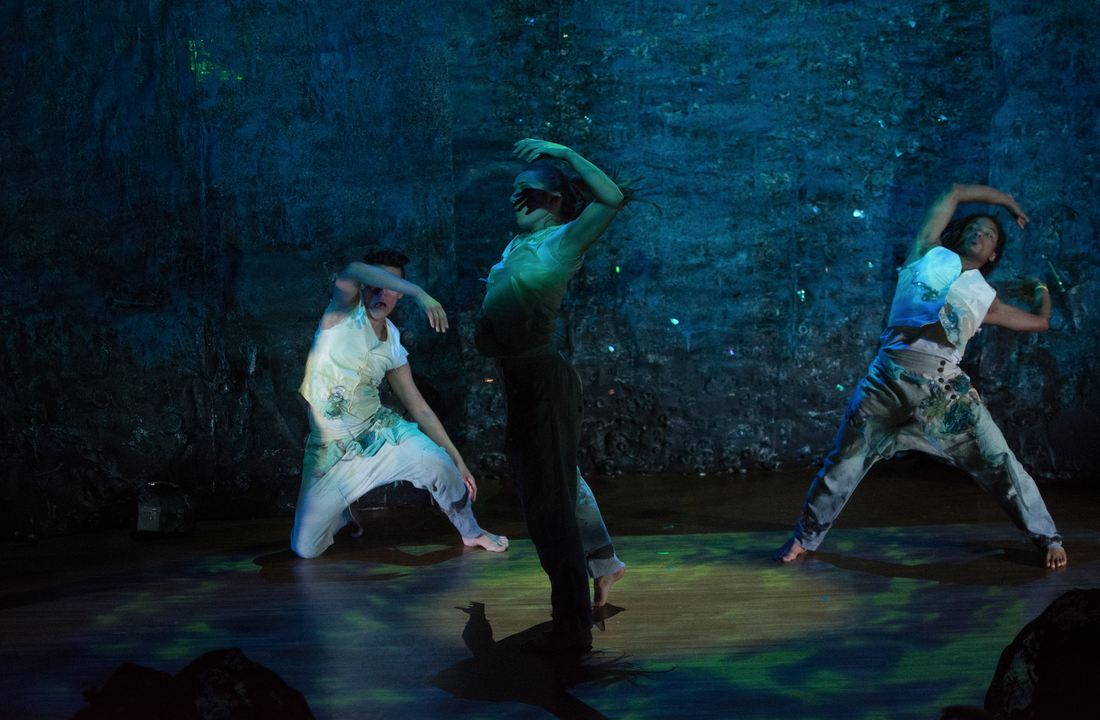
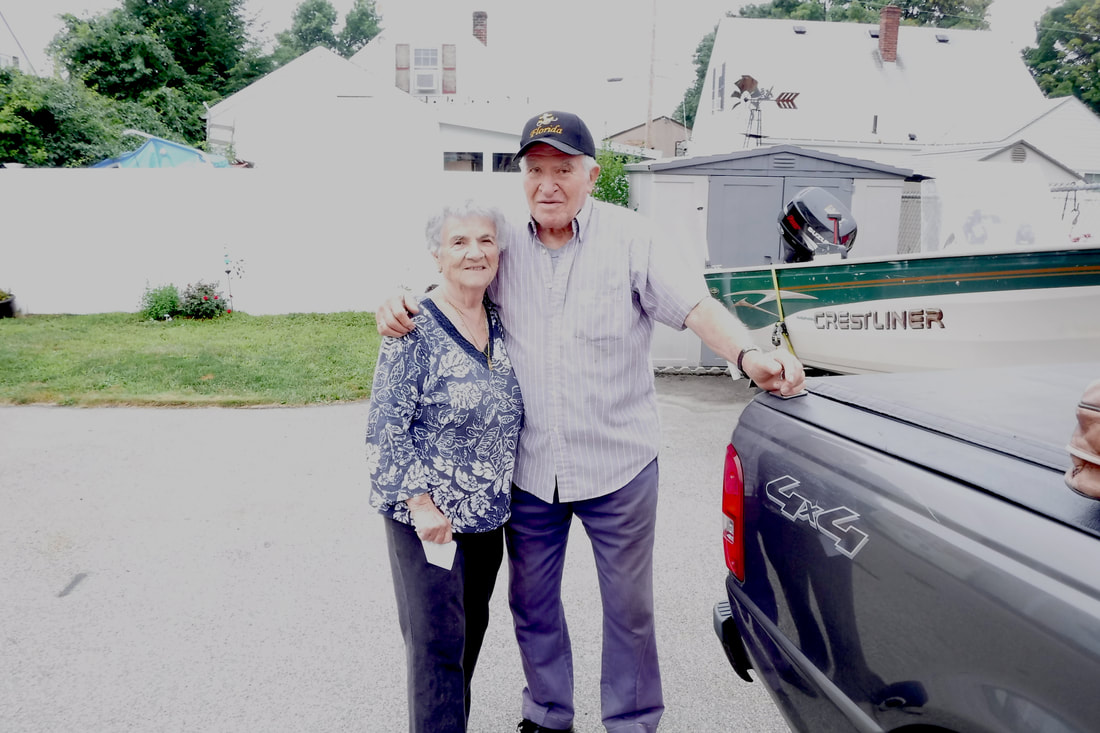
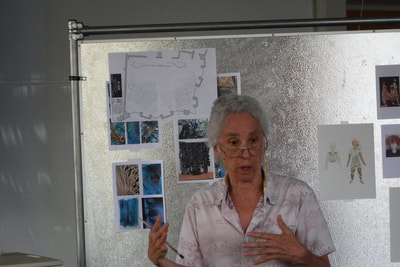
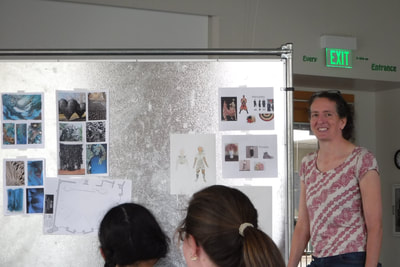
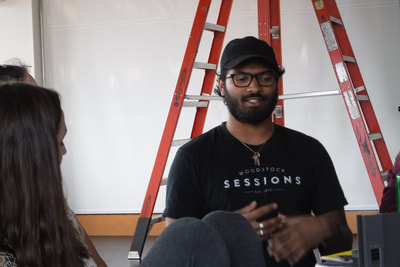
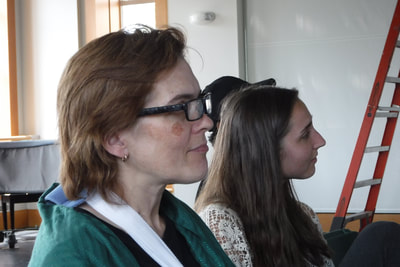
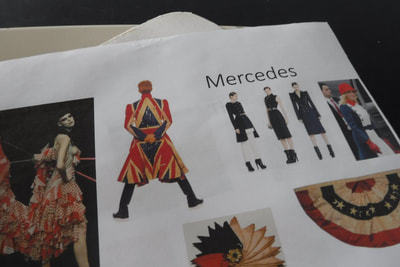
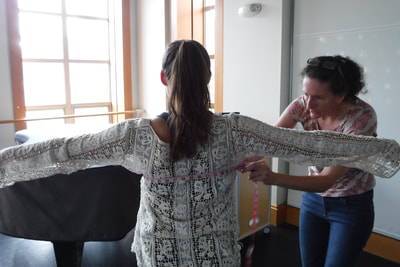
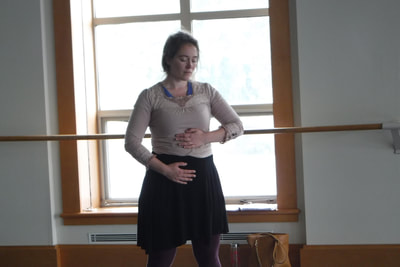
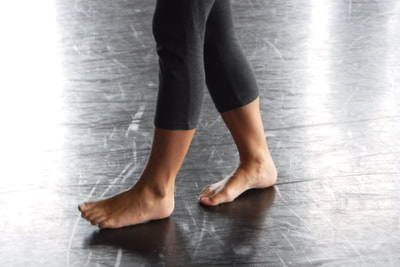
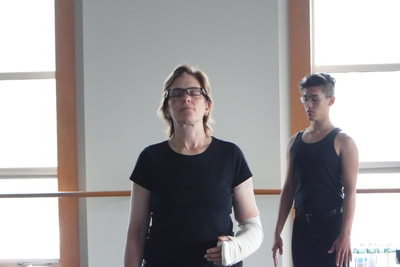
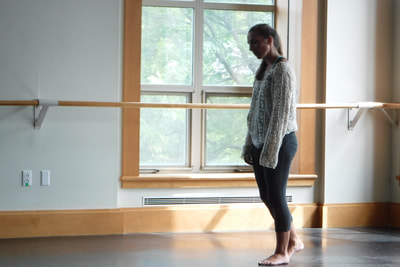
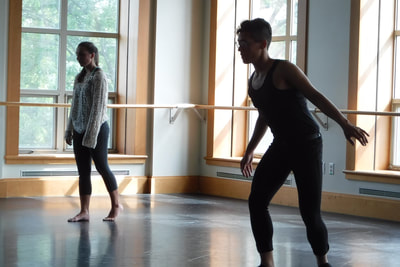
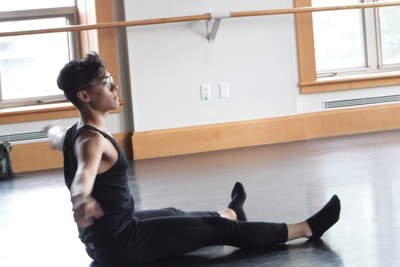
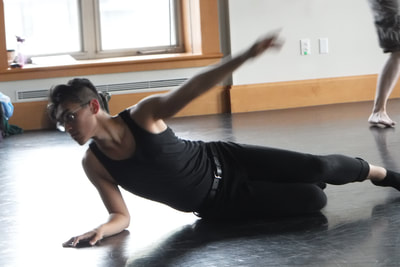
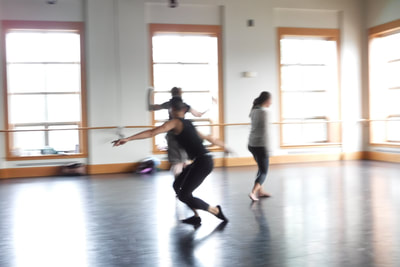
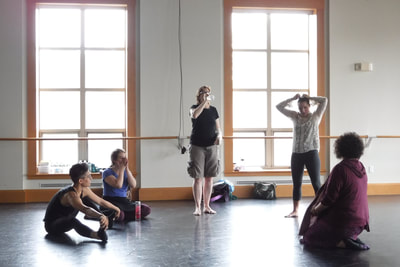
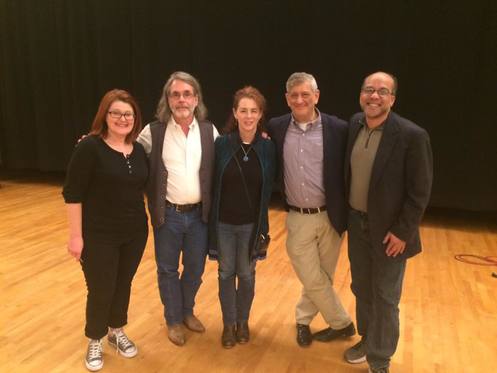
 RSS Feed
RSS Feed



